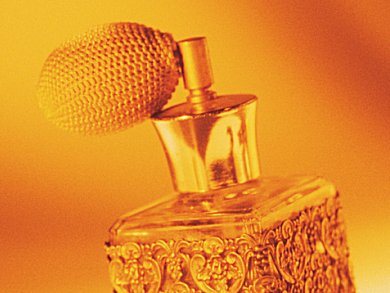Individual body odour plays an important role in partner selection of humans, mice, fish, birds, and probably other vertebrates. Thomas Boehm, Max Planck Institute of Immunobiology and Epigenetics, Freiburg, Germany, and colleagues have succeeded in explaining the chemical nature of this individual scent. They synthesized it and tested its effectiveness on test persons, resulting in the understanding of how perfumes that are completely effective biologically can be produced synthetically.
Since the 1990s it is known that women prefer the smell of men who have different immune gene variants than they themselves have and that these immune variants also determine which natural ingredients both women and men prefer in the perfumes they use.
Major histocompatiblity complex (MHC) molecules are involved in antigen presentation. Their structure determines the probability with which a given pathogen will be recognized by the individual’s immune system. The protein ligands originating from bacteria, viruses, and parasites are bound by MHC molecules. The range of peptides that are not bound reflects the range of MHC molecules. By this the structure of the protein ligands can be predicted for the human immune molecules.
The researchers were able to produce the components of the body odour artificially and studied their perception in the brain using functional magnetic resonance imaging (fMRI). A small area located in the right middle frontal cortex always responded when the test subjects smelled one of their own peptides.
- Major histocompatibility complex peptide ligands as olfactory cues in human body odour assessment,
Manfred Milinski, Ilona Croy, Thomas Hummel, Thomas Boehm,
Proc. Royal Soc., B. 2013.
DOI: 10.1098/rspb.2012.2889




